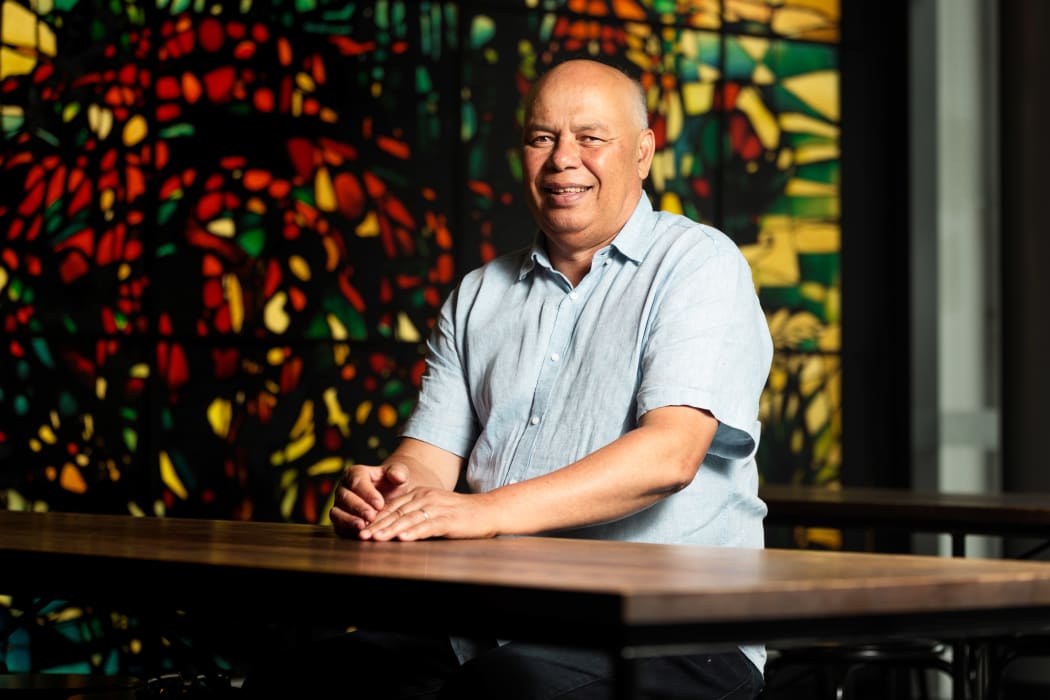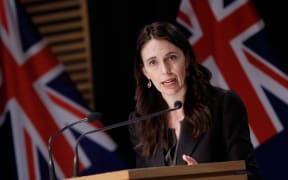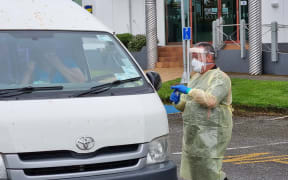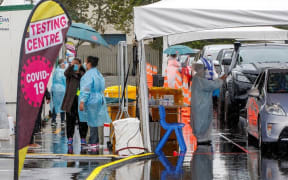A Pasifika health expert says the number of Covid-19 cases and contacts isolating at home is already more than what health providers could keep up with in places like South Auckland.

Collin Tukuitonga Photo: supplied by University of Auckland
The shift to phase two was announced by Prime Minister Jacinda Ardern today. It will ease pressure on the teams contact tracing and monitoring the country's nearly 5000 known Covid-19 cases.
Some have been pushed to the brink, amid warnings the true case total could be as high as 50,000.
Pasifika health expert Dr Collin Tukuitonga said the sheer number of people isolating at home had surpassed the level that health providers could keep up with in places like South Auckland.
Phase two will ease the burden on contact tracers, who will use text messaging and digital technology more than phone calls, while the isolation period will drop to 10 days for cases and seven days for contacts.
Dr Tukuitonga said that was overdue.
"The system is stretched and Pacific providers in particular are just a manifestation of the system under duress. Overnight the number of cases rose exponentially so there's lots of cases to manage and support as well as their contacts. A reduction in the requirement for isolation for cases would be a practical difference to providers."
Testing sites have also been stretched, with lengthy queues reported at some centres in Auckland today.
Northern Region Health Co-ordination Centre said it expected the high demand to continue in coming weeks.
It asks only symptomatic people, close contacts and those subject to mandatory testing orders to get a swab, and for people in the queue to be patient.
University of Otago infectious diseases expert Professor Kurt Krause admitted the steep surge in cases may seem a little scary, especially when the real number of infections in the community could be "10 or 12 times" higher.
Just 188 new daily infections were reported this time last week, 981 were reported today.
He predicted that figure would keep going up.
"I expect we'll see significantly higher numbers as we move through the week. Although it would be hard to predict the peak right at this point," he said.
There was also a lot to be relieved about, Krause said.
He believed the country was ready for Omicron, and said case numbers were growing on the same trajectory as they did in other countries.
"Generally speaking, if you look what's happened overseas, it's kind of a six-to-eight-week period where Omicron plays out and then we'll be through this. It's also looking - so far, at least - overseas, like hasn't been a big jump up after Omicron," he said.
Something experts agree would help ease the shock of Omicron was the vaccination programme.
Of those eligible for a booster, 60 percent had received one, with nearly 2 million doses administered overall.
Looking more closely at the data, Tukuitonga was concerned the most vulnerable populations, remained the least vaccinated.
"If you look at the paediatric uptake, for example, Māori has the lowest uptake, and Pasifika. [We need] to try and address those inequities with targeted resourcing and political support to providers who are most connected to those communities," he said.
Immunologist Dr Dianne Sika-Paotonu said the country can't afford to let its guard down.
"We need to keep doing everything we can in order to try and not just slow down the spread of Omicron, but to ensure that our children, our little ones, aged five to 11, are getting vaccinated, but also that people are getting boosted. And that people who need to be tested are actually getting tested and that we isolate accordingly."






